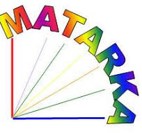Féltermészetes agrártájak ökoszisztéma-szolgáltatásai a gazdálkodók szemszögéből
Absztrakt
Az agrártájak féltermészetes élőhelyei pótolhatatlanul fontos ökoszisztéma-szolgáltatásokat nyújtanak, mint például a beporzás, a kártevők és a talajerózió szabályozása, a széndioxid megkötés vagy a tájesztétika. Ezen élőhelyek ökoszisztéma-szolgáltatásaira azonban eddig csak kevés kutatás irányult Európában, s azok is meglehetősen féloldalasok. A QUESSA FP7-es kutatásban interjús és fókuszcsoportos kutatással vizsgáltuk, hogy a féltermészetes élőhelyek ökoszisztéma-szolgáltatásait mennyire ismerik, hogyan értékelik a tájban élő gazdálkodók. A gazdálkodók részvételén alapuló nem pénzbeli ökoszisztéma-szolgáltatás értékelési módszereinkkel nehezen számszerűsíthető társadalmi hasznokat, kulturális értékeket mutattuk ki, és nem találtunk áthidalhatatlan különbséget a gazdálkodói és a tudományos ökoszisztéma-szolgáltatás elgondolásokban. A közös mérlegelés pedig tovább segített az ökoszisztéma-szolgáltatás fogalom gazdagításában, a féltermészetes élőhelyek mezőgazdasági használaton túlmutató hasznainak megismerésében.
Hivatkozások
Baveye, P. C., Baveye, J. & Gowdy, J. (2013): Monetary valuation of ecosystem services: it matters to get the timeline right. – Ecol. Econ. 95: 231–235. doi: http://dx.doi.org/10.1016/j.ecolecon.2013.09.009
Baveye, P. C., Baveye, J. & Gowdy, J. (2016): Soil “Ecosystem” Services and Natural Capital: Critical Appraisal of Research on Uncertain Ground. – Front. Environ. Sci. 4: 41. doi: http://journal.frontiersin.org/article/10.3389/fenvs.2016.00041/full
Buijs, A., Fisher, A., Rink, D. & Young, C. J. (2008): Looking beyond superficial knowledge gaps: Understanding public representations of biodiversity. – International Journal of Biodiversity Science and Management 4: 65–80. doi:http://dx.doi.org/10.3843/Biodiv.4.2:1
Burton, R. J. F. (2004): Seeing Through the ‘Good Farmer’s’ Eyes: Towards Developing an Understanding of the Social Symbolic Value of ‘Productivist’ Behaviour. – Sociol. Ruralis 44: 195–215. doi: http://dx.doi.org/10.1111/j.1467-9523.2004.00270.x
De Groot, R., Fisher, B., Christie, M., Aronson, J., Braat, L., Haines-Young, R., Gowdy, J., Killeen, T., Maltby, E., Neuville, A., Polasky, S., Portela, R. & Ring, I. (2010): Integrating the ecological and economic dimensions in biodiversity and ecosystem service valuation. – Draft Chapter 1 of The Economics of Ecosystems and Biodiversity (TEEB) study.
De Schutter, O. & Petrini, C. (2017): Time to put a Common Food Policy on the menu. – In Politico,Op-Ed. Febr 2, 2017. URL: http://www.politico.eu/pro/opinion-time-to-put-a-common-food-policy-on-the-menu/
Duru, M., Therond, O., Martin, G., Martin-Clouaire, R., Magne, M-A., Justes, E., Journet, W-P., Aubertot, J-N., Savary, S., Bergez., J-E. & Sarthou, J-P. (2015): How to implement biodiversity-based agriculture to enhance ecosystem services: a review. – Agron. Sustain. Dev. 35: 1259–1281. doi: http://dx.doi.org/10.1007/s13593-015-0306-1
Elo, S. & Kyngäs, H. (2008): The Qualitative Content Analysis Process. – J. Adv. Nurs. 62: 107–115. doi: http://dx.doi.org/10.1111/j.1365-2648.2007.04569.x
FAO (2016): Adapting agriculture to climate change. URL: http://www.fao.org/docrep/011/aj982e/aj982e02.pdf
Fisher, B., Turner, R. K. & Morling, P. (2009): Defining and classifying ecosystem services for decision making. – Ecol. Econ. 68: 643–653. doi: https://doi.org/10.1016/j.ecolecon.2008.09.014
Goldman, R. L., Thompson, B. H. & Daily, G. C. (2007): Institutional incentives for managing the landscape: Inducing cooperation for the production of ecosystem services. – Ecol. Econ, 64: 333–343. doi: https://doi.org/10.1016/j.ecolecon.2007.01.012
Haines-Young, R. & Potschin, M. (2010): The links between biodiversity, ecosystem services and human well-being. – In: Raffaelli, D. G. & Frid, C. L. J. (eds.): Ecosystem Ecology: A New Synthesis. – British Ecological Society, Cambridge University Press, pp. 110–139.
Holland, J. M , Jeanneret, P. , Herzog , F., Moonen, A-C., Rossing, W., van der Werf, W., Kiss, J., van D., Entling, M. & Balázs, B. (2014): The QuESSA Project: Quantification of Ecological Services for agriculture. Landscape Management for Functional Biodiversity. – International Osustainable rganisation for Biological Control/West Palaearctic Regional Section Bulletin 100: 55–58.
Holland, J. M., Bianchi, F. J. J. A., Entling, M. H., Moonen, A. C., Smith, B. M. & Jeanneret, P. (2016): Structure, function and management of semi-natural habitats for conservation biological control: A review of European studies. – Pest. Manag. Sci. 72: 1638–1651. doi: http://dx.doi.org/10.1002/ps.4318
IPES (2017): Towards a Common Food Policy for the European Union. – A 3-year process of research, reflection and citizen engagement. URL: http://www.ipes-food.org/images/Reports/CFP_ConceptNote.pdf
Kelemen, E. (2011): Árak vagy érvek? Módszertani dilemmák a természet szolgáltatásainak értékelésében. – Kovász 3: 31–57.
Kelemen, E, Pataki, Gy., Balázs, B., Bela, Gy., Fabók, V., Kalóczkai, Á., Kohlheb, N., Kovács, E., Kovács Krasznai, E. & Mertens, C. (2014): A nem pénzbeli értékelési módszerek kontextusfüggő alkalmazásának tapasztalatai. – In: Kelemen, E. & Pataky, Gy. (szerk.): Ökoszisztéma szolgáltatások: A természet- és társadalomtudományok metszéspontjában. – Szent István Egyetem, Környezet- és Tájgazdálkodási Intézet; Environmental Social Science Research Group (ESSRG), Gödöllő; Budapest, pp. 56–75.
Kelemen, E. & Pataki, Gy. (2014): Az ökoszisztéma szolgáltatások értékelésének elméleti megalapozása. – In: Kelemen, E. & Pataki, Gy. (szerk.): Ökoszisztéma szolgáltatások: A természet- és társadalomtudományok metszéspontjában. – Gödöllő; Budapest: Szent István Egyetem, Környezet- és Tájgazdálkodási Intézet; Environmental Social Science Research Group (ESSRG), Gödöllő, Budapest, pp. 35–55.
Kelemen, E., Nguyen, G., Gomiero, T., Kovács, E., Choisis, J.-P., Choisis, N., Paoletti, M. G., Podmaniczky, L., Ryschawy, J., Sarthou, J.-P., Herzog, F., Dennis, P. & Balázs, K. (2013): Farmers’ perceptions of biodiversity: Lessons from a discourse-based valuation study. – Land Use Policy 35: 318–328. doi: http://doi.org/10.1016/j.landusepol.2013.06.005
Kohlbacher, F. (2006): The Use of Qualitative Content Analysis in Case Study Research. – Forum: Qualitative Social Research. 7(1) URL: http://www.qualitative-research.net/index.php/fqs/article/view/75/153
Kovács, E., Kelemen, E. & Pataki, Gy. (2011): Ökoszisztéma szolgáltatások a tudományterületek és a szakpolitikák metszéspontjaiban. – Természetvédelmi Közlem. 17: 1–11.
Kovács, E., Kelemen, E., Kalóczkai, Á., Margóczi, K. Pataki, Gy., Gébert, J., Málovics, Gy., Bálint, B., Roboz, Á., Krasznai Kovács, E. & Mihók., M. (2015): Understanding the links between ecosystem service trade-offs and conflicts in protected areas. – Ecosyst. Serv. 12: 117–127. doi: http://doi.org/10.1016/j.ecoser.2014.09.012
Kovács-Hostyánszki, A., Espíndola, A., Vanbergen, A. J., Settele, J., Kremen, C. & Dicks, L. V. (2017): Ecological intensification to mitigate impacts of conventional intensive land use on pollinators and pollination. – Ecol. Lett. 20: 673–689. doi: http://dx.doi.org/10.1111/ele.12762
Kumar, M. & Kumar, P. (2008): Valuation of the ecosystem services: A psycho-cultural perspective. – Ecol. Econ. 64: 808–819. doi: http://doi.org/10.1016/j.ecolecon.2007.05.008
Lant, C. L., Ruhl, J. B. & Kraft, S. E. (2008): The tragedy of ecosystem services. – BioScience 58: 969–974. doi: http://doi.org/10.1641/B581010
Lele, S., Springate-Baginski, O., Lakerveld, R., Deb, D. & Dash, P. (2013): Ecosystem services: origins, contributions, pitfalls, and alternatives. – Conservat. Soc. 11: 343–358. doi: http://doi.org/10.4103/0972-4923.125752
Lescourret, F., Magda, D., Richard, G., Adam-Blondon, A. F., Bardy, M., Baudry, J. & Martin-Clouaire, R. (2015): A social–ecological approach to managing multiple agroecosystem services. – Curr. Opin. Sust. 14: 68–75. doi: https://doi.org/10.1016/j.cosust.2015.04.001
Martínez-Alier, J. (2002): The environmentalism of the poor. A study of ecological conflicts and valuation. – Edward Elgar. Cheltenham, UK.
Martín-López, B., Iniesta-Arandia, I., García-Llorente, M., Palomo, I., et al. (2012): Uncovering ecosystem services bundles through social preferences: Experimental evidence from Spain. – PLoS ONE 7: e38970. doi: http://doi.org/10.1371/journal.pone.0038970
Mayring, P. (2000): Qualitative Content Analysis. – Forum: Qualitative Social Research. 1(2). Art. 20. URL: doi: http://www.qualitative-research.net/index.php/fqs/article/view/1089/2385
MEA (2005): Ecosystems and Human Well-being: Synthesis. – Island Press, Washington, DC.
Nahlik, A. M., Kentula, M. E., Fennessy, M. S. & Landers, D. H. (2012): Where is the consensus? A proposed foundation for moving ecosystem service concepts into practice. – Ecol. Econ. 77: 27–35. doi: http://doi.org/10.1016/j.ecolecon.2012.01.001
Norgaard, R. B. (2010): Ecosystem services: From eye-opening metaphor to complexity blinder. – Ecol. Econ. 69: 1219–1227. doi: http://doi.org/10.1016/j.ecolecon.2009.11.009
O’Hara, S. U. (1996): Discursive ethics in ecosystems valuation and environmental policy. – Ecol. Econ. 16: 95–107. doi: http://doi.org/10.1016/0921-8009(95)00085-2
Pasqual, U., Balvanera, P., Díaz, S., Pataki, Gy., Roth, E., Stenseke, M., Watson, R. T., Dessane, E. B., Islar, M., Kelemen, E., Maris, V., Quaas, M., Subramanian, S. M., Wittmer, H., Adlan, A., Ahn, S., Al-Hafedh ,W. S., Amankwah, E., Asah, S.T., Berry, P., Bilgin, A., Breslow, S. J., Bullock, C., Cácere, D., Daly-Hassen H., Figuero,a E., Golden, C.D., Gómez-Baggethun, E., González Jiménez, D., Houdet, J., Keune, H., Kumar, R., Ma, K., May, P. H., Mead, A., O’Farrel, P., Pandit, R., Pengue, W., Pichis Madruga, R., Popa, F., Preston, S., Pacheco-Balanza, D., Saaroski, H., Strassburg, B. B., van den Belt, M., Verma, M., Wickson, F. & Yagi, N. (2017): Valuing nature’s contributions to people: the IPBES approach. – Curr. Opin. Sust. 26: 7–16. doi: http://dx.doi.org/10.1016/j.cosust.2016.12.006
Pataki Gy. (szerk.) (2014): A gazdasági versenyképesség és az ökoszisztéma-szolgáltatások összefüggése a mezőgazdálkodás példáján. – kézirat, ESSRG, Budapest, 111 p.
Patton, M. Q. (2002): Qualitative Research and Evaluation Methods. – Sage, London, 598 p.
Sandhu, H. & Wratten, S. (2013): Ecosystem services in farmland and cities. Ecosystem services in agricultural and urban landscapes. – In: Wratten, S., Sandhu, H., Cullen, R. & Costanza, R., (eds.): Ecosystem Services in Agricultural and Urban Landscapes. – Wiley-Blackwell. Oxford. pp. 1–15.
Santos-Martín, F., Kelemen, E., García-Llorente, M., Jacobs, S., Oteros-Rozas, E., Palomo, I., Barton, D. N., Hevia, V. & Martín-López, B. (2017): Socio-cultural valuation approaches. – In: Burkhard, B., Maes, J. (eds.): Mapping ecosystem services. – Pensoft Publishers. URL: http://ab.pensoft.net/article/12837/list/1/
Silvertown, J. (2015). Have ecosystem services been oversold? – Trends Ecol. Evol. 30: 641–648. doi: http://doi.org/10.1016/j.tree.2015.08.007
Smith, H. F. & Sullivan, C.A. (2014): Ecosystem services within agricultural landscapes - Farmers’ perceptions.–– Ecol. Econ. 98: 72–80. doi: http://doi.org/10.1016/j.ecolecon.2013.12.008
Soini, K. (2001): Exploring human dimensions of multifunctional landscapes through mapping and map making. – Landscape Urban Plan. 67: 225–239. doi: http://doi.org/10.1016/S0169-2046(01)00206-7
Stallman, H. R. (2011): Ecosystem services in agriculture: Determining suitability for provision by collective management. – Ecol. Econ. 71: 131–139. doi: http://doi.org/10.1016/j.ecolecon.2011.08.016
Sutherland, L. A., Darnhofer, I., Wilson, G. & Zagata, L. (eds.) (2014): Transition pathways towards sustainability in agriculture: case studies from Europe. – CABI.
Swinton S. M., Lupi F., Robertson G. P., Hamilton S. K. (2007): Ecosystem services and agriculture: cultivating agricultural ecosystems for diverse benefits. – Ecol. Econ. 64: 245–252. doi: http://doi.org/10.1016/j.ecolecon.2007.09.020
TEEB (2015) TEEB for Agriculture & Food: an interim report, United Nations Environment Programme, Geneva, Switzerland. URL: http://www.teebweb.org/agriculture-and-food/
Wilson, M. A. & Howarth, R. B. (2002): Discourse-based valuation of ecosystem services: establishing fair outcomes through group deliberation. – Ecol. Econ. 41: 431–443. doi: http://doi.org/10.1016/S0921-8009(02)00092-7
Zhang, W., Ricketts, T. H., Kremen, C., Carney, K. & Swinton, S. M. (2007): Ecosystem services and dis-services to agriculture. – Ecol. Econ. 64: 253–260. doi: http://doi.org/10.1016/j.ecolecon.2007.02.024
http1: https://www.essrg.hu/en/quessa/ (letöltés: 2017. március)






